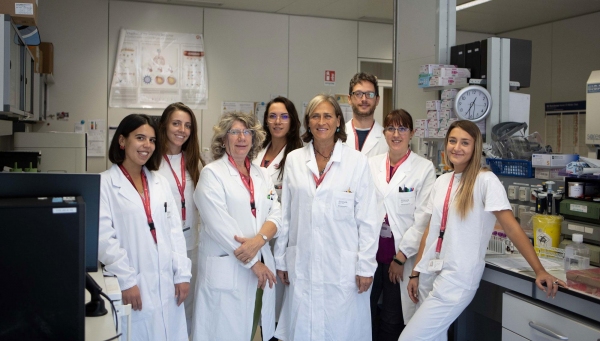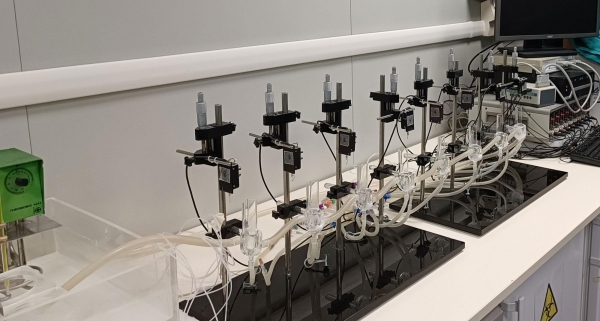Innovative strategies in organ and cell transplantation and approach to the transplant candidate /
Nephrology, Dialysis, and Kidney Transplantation
The main fields of interest of our research group are:
Innovation in precision medicine for patients with kidney diseases and kidney transplant recipients:
Our mission in this research field is to develop the use of innovative techniques to improve the sensitivity and specificity of histological studies of renal biopsies in patients with native or transplanted kidney pathology. In the field of transplantation, we have recently been involved in the international consortium on the use of liquid biopsy combined with renal biopsies to improve the diagnosis and follow-up of transplant patients (L.I.C.U.I.D. consortium for kidney disease). Moreover, our laboratory is actively involved along with other international centers in the development and validation of predictive biomarkers of kidney damage for the characterization and management of chronic kidney diseases and kidney transplant pathologies.
Research on the pathophysiological and therapeutic processes of glomerular diseases:
Our laboratory has a strong tradition in studying glomerular diseases such as focal segmental glomerulosclerosis, the most common cause of primary nephrotic syndrome, a pathology that unfortunately presents a very high rate of recurrence after kidney transplantation with graft loss. Recently, our laboratory has patented a device that experimentally reproduces the glomerular filtration barrier, allowing us to identify the most severe cases at higher risk of recurrence after transplantation and to monitor the response to therapies that are currently ineffective. Our aim for the future is to test new pharmacological approaches both in vitro and in preclinical models.
Research on the relationship between alterations in mineral, bone and fatty acid metabolism and cardiovascular pathology:
Mineral and bone alterations are present from the early stages of chronic kidney disease and define a syndrome called chronic kidney disease mineral bone disorder (CKDMBD). Our nephrology research laboratory has long been conducting studies aimed at identifying specific patterns that determine the close connection between CKDMBD and cardiovascular risk. This line of research has led to the realization of numerous projects and publications, including translational research. Recently, our interest has also focused on changes in serum levels of fatty acids during CKD, which contribute to pro-inflammatory, pro-atherogenic, and oxidative stress, significantly impacting the heart, accelerating the progression of chronic kidney disease, and increasing the risk of cardiovascular diseases.
Research on urinary sediment:
In our Research Center, there is a dedicated laboratory for the advanced study of urinary sediment to support the diagnosis of major renal pathologies. The rich tradition of this laboratory has fostered numerous national and international collaborations, making it a reference point in the research and characterization of urinary abnormalities present in various native and transplanted kidney pathologies.
- Luminometer (Xenius Safas, Monaco)
- Zeiss Axio Observer Z1 microscope equipped with a high-resolution AxioCamMRc5 digital videocamera and Apotome system
- CFX Connect BioRad equipped with e IQ5 Bio-Rad Software
- Chemidoc XRS instrument and Quantity One software (Bio-Rad).
- Gas-chromatographer Shimadzu Nexis GC-2030 (Shimadzu, Japan) equipped with a 30m fused silica capillary column FAMEWAX Restek (Restek, USA) equipped with Lab solution software (Shimadzu, Japan) (team Prof. Agostoni)
- Optima L-XP Series Preparative Ultracentrifuge Beckman Coulter equipped with Type 90 Ti Rotor fixed angle rotor
- Cryostat and microtome Leica
- MACSima Imaging Platform (miltenyi Biotec)
Main national and international collaborations:
- L.I.C.U.I.D. consortium, Harvard Medical School Brigham and Women’s Hospital, Boston USA - Mount Sinai Hospital New York, USA
- Department of Organic Chemistry, Federico II University of Naples
- Department of Chemistry, Materials, and Chemical Engineering "Giulio Natta," Polytechnic University of Milan
- Hôpital Tenon, Paris, France, and Faculty of Medicine
- Sorbonne University, Paris, France
2 associate professors, 5 nephrologists, 5 health researchers
—
Other activities in this Research Line
Innovative strategies in organ and cell transplantation and approach to the transplant candidate
Thoracic Surgery and Lung Transplant
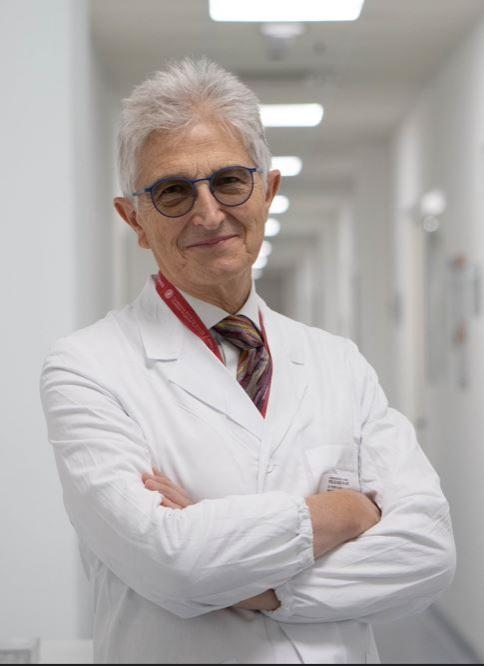
Mario Nosotti
Anatomical Pathology
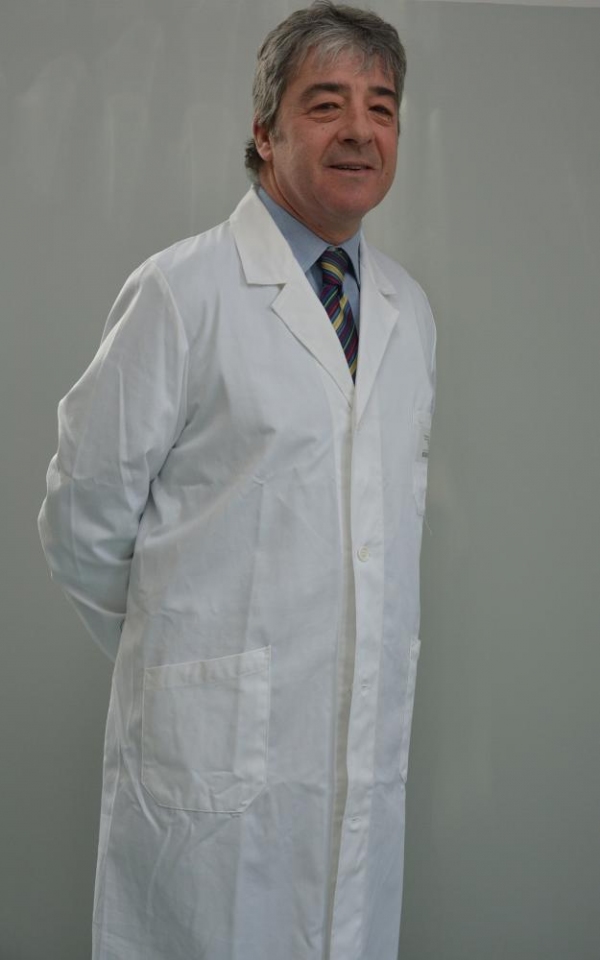
Stefano Ferrero
General Surgery - Liver Transplant

Cristiano Quintini
Pediatric Nephrology and Dialysis - Kidney Transplantation
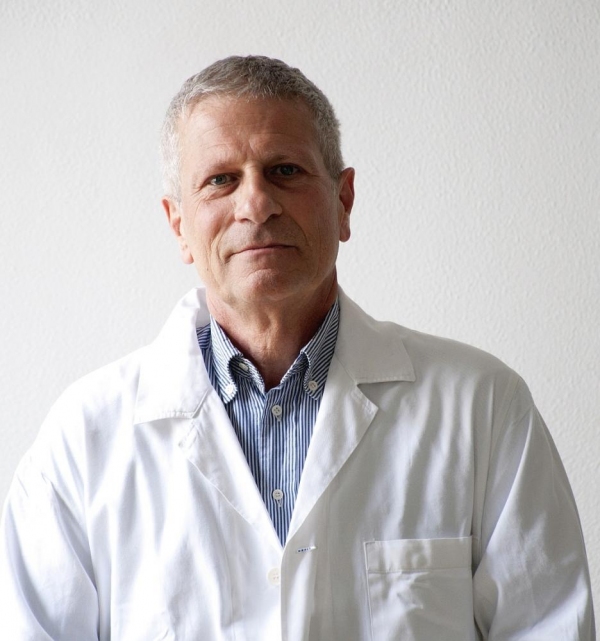
Giovanni Montini
Pediatrics - Gastroenterology, hepatology, pediatric transplantation and Cystic Fibrosis
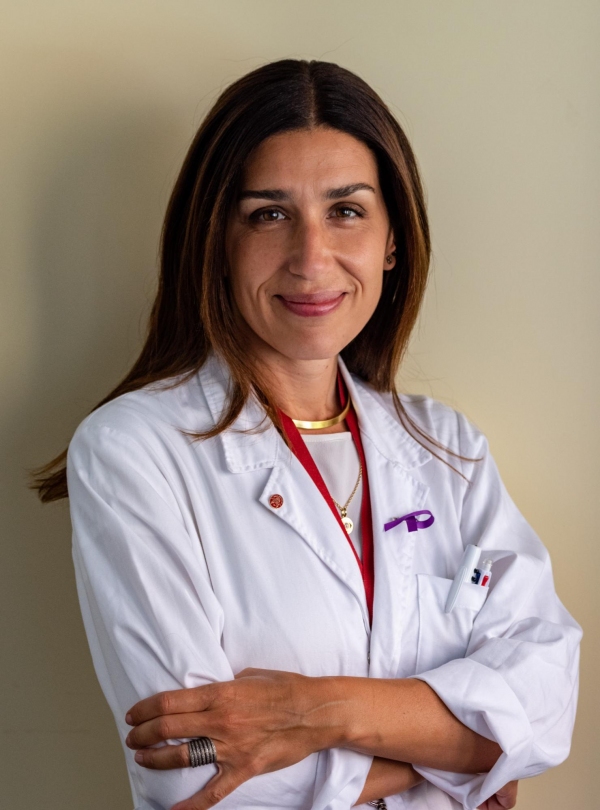
Marina Aloi




